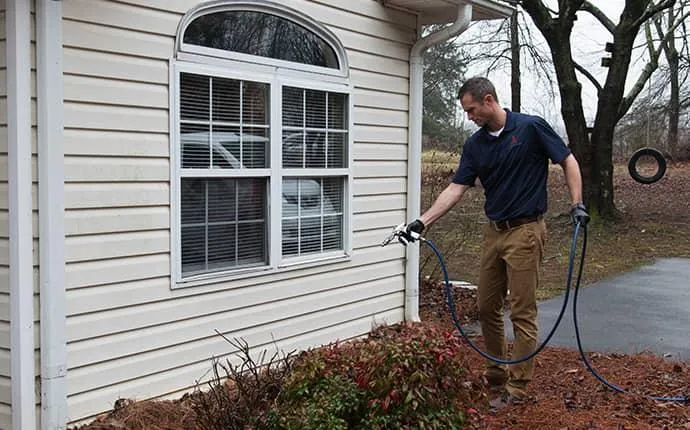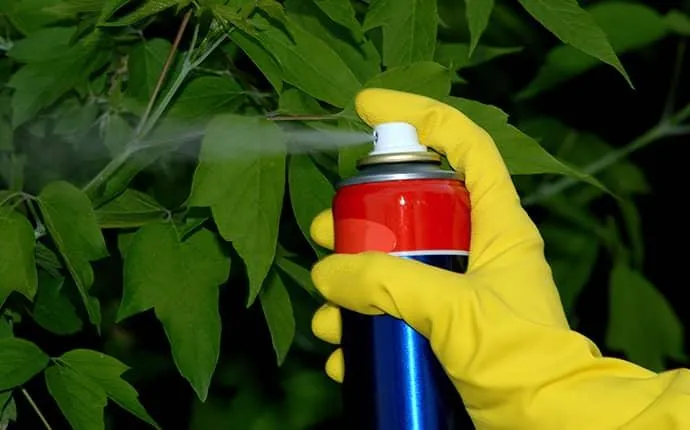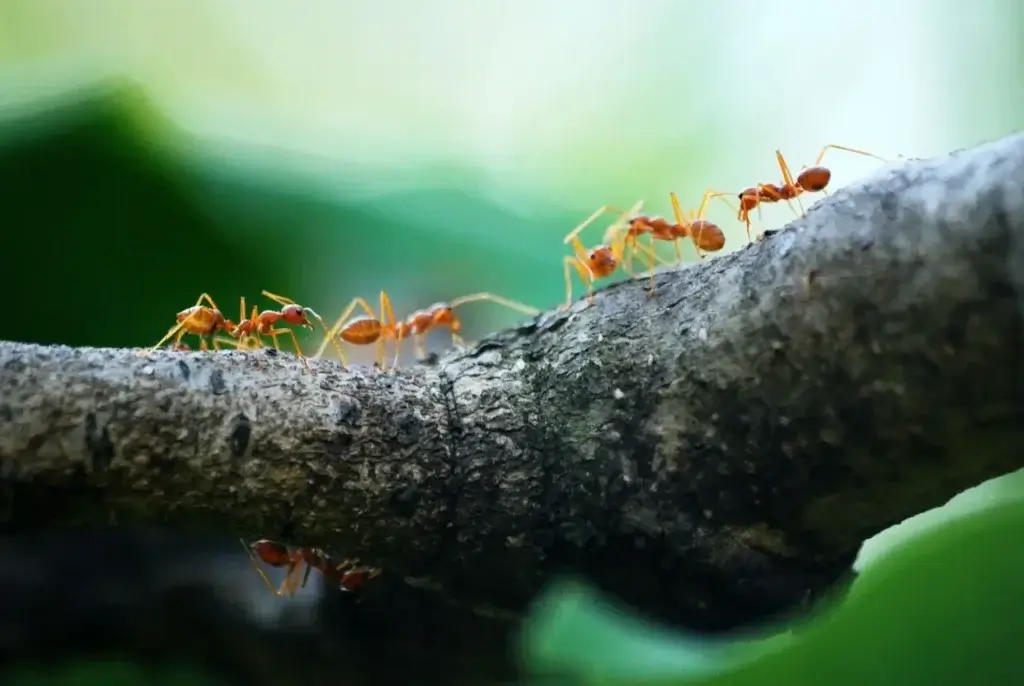
Why Ant Control Exterminators Beat DIY Every Time
Ants are frustrating, not just because they get into our food and are somehow everywhere - but because they keep coming, and coming, and coming! If you aren't working with ant control exterminators, you're likely not stopping them at the source.
In this article, we'll debunk some common do-it-yourself ant control methods - and why it pays to hire a professional!


Table of Contents
Why Ants in Your Home Is an Issue
If you notice even a few ants in your home, it's essential to take prompt action to address the issue. Certain species of ants, such as carpenter ants in North Carolina, can have a more detrimental impact on your home.
Ants also know how to throw a party! Ants leave scent trails that help other ants find food sources, so the presence of a few ants can attract more over time. Regular cleaning, proper food storage, and sealing entry points can help prevent a small ant presence from developing into a full infestation.
If you suspect that the ant problem is escalating, it's advisable to seek professional ant control exterminators to address the issue effectively.
How an Ant Infestation Starts
The speed at which a few ants can turn into a full ant infestation can vary depending on several factors, including the ant species, environmental conditions, and available food sources. In some cases, it can happen relatively quickly, while in others, it may take more time. Here are some key factors that influence the timeline:
- Ant Species: Different ant species have varying reproductive rates and colony growth patterns. Some species reproduce quickly and can establish large colonies rapidly, while others may have slower growth rates.
- Environmental Conditions: Temperature, humidity, and seasonal changes can affect ant activity. Warmer conditions generally lead to increased ant activity and faster colony growth.
- Food Sources: The availability of food plays a significant role. If there is a consistent and abundant food source near the ants' nesting site, it can accelerate colony growth. This is particularly true for species that feed on sweets or protein sources.
- Nesting Sites: The accessibility and suitability of nesting sites also matter. If ants find a suitable nesting site within a home or building, they may establish a colony more quickly.
- Colony Size: Some ants, like Argentine ants, can form supercolonies consisting of multiple interconnected nests. These supercolonies can expand rapidly and cover large areas.
Common DIY Ant Control Methods
DIY ant control can be effective for dealing with just a few ants. However, the assumption that you have just a few ants roaming about in search of food can quickly lead to a full-blown ant infestation. If you've been seeing ants appear and re-appear, it's time to contact professional ant control exterminators.
But for those of you who have a few lingering ants in your home, here are some common approaches to managing ants:
- Ant Baits: Ant bait stations are one of the most popular and effective DIY solutions. Ant baits contain a slow-acting poison that worker ants carry back to the colony, eventually eliminating it. Place bait stations in areas where ants are active, such as along their foraging trails or near entry points.
- Natural Repellents: Many natural substances can deter ants. Sprinkling cinnamon, coffee grounds, or cayenne pepper along ant trails or near entry points can discourage them from entering your home. Vinegar or lemon juice mixed with water can also be used to clean surfaces and disrupt pheromone trails.
- Sealing Entry Points: Prevent ants from entering your home by sealing cracks, gaps, and crevices with caulk or weatherstripping. Focus on areas around windows, doors, pipes, and electrical outlets.
- Keeping Food Secure: Store food in airtight containers and clean up crumbs and spills promptly. Pet food should also be stored securely. Ants are attracted to food sources, so minimizing their access to these items is crucial.
- Diatomaceous Earth: Food-grade diatomaceous earth is a natural and safe powder that can be sprinkled in areas where ants are active. It works by dehydrating and damaging the exoskeleton of insects, including ants.
- Boiling Water: For outdoor ant nests, pouring boiling water directly into the nest can be effective in killing ants and disrupting the colony. Exercise caution when using this method, and ensure it is safe for your specific outdoor environment.
- Commercial Sprays: Some over-the-counter ant sprays and repellents are available for DIY use. These products can be used to create a barrier around your home's perimeter or on specific ant trails.
- Ant Traps: In addition to baits, there are ant traps available that can capture and contain ants. These traps can be placed along ant trails or near entry points.
Method or Myth: Debunking DIY Ant Control

Some DIY ant control methods are more like myths - while well-intentioned, they're not effective at actually eliminating ant infestations. Common practices like using vinegar, essential oils, or baking soda as natural repellents may provide only temporary relief or deter ants from specific areas rather than eliminating the entire colony.
Let's dive into some of the common DIY ant control treatments - and why they're more a myth than a method.
1. Ant Sprays
When you see a long line of tiny ants crawling across the divider between your kitchen and living room, you may be tempted to just spray those ants with a treatment from a big box store and get it over with. However, this can be a big mistake. Not only are ant sprays ineffective at stopping ant infestations, they can actually make an infestation worse!
Ants are wired for self-preservation. If they sense a threat, it will affect their behavior patterns. One of the worst outcomes that can result from spraying ants is called budding which is when a single ant colony splits into multiple colonies in response to a perceived threat. So, instead of having one colony to deal with, you now have two, three, or more which is the opposite of solving the problem!
Another problem with DIY ant sprays is that store-bought ant sprays and powders often target visible ants, but do little to address the root of the problem—the nest. They attack the symptoms. Sure, you'll kill some ants. But that colony will send more ants into your home to replace them.
2. Ant Bait Stations
Some homeowners turn to baits to stop ant infestations. But those baits are often implemented incorrectly and end up being ineffective. For effective ant control, the right baits need to be selected and to choose the correct bait, you have to be able to properly identify the ant species in your home. It is also important to place bait stations in the right places; if you don't, they won't do anything to help your problem.
3. Pairing Ant Bait with Ant Spray
When sprays and bait are used together, they can neutralize each other.
Sprays are repellent to ants meaning they won't want to go anywhere near locations you have sprayed. So when ant sprays are used around bait traps, it makes them unable to accomplish their original purpose, to lure ants to the bait stations and eliminate them.
Why Ant Control Exterminators Are Effective
DIY ant control methods often struggle to deal with the complexity of ant colonies, the need for targeted treatments, and the challenges of locating hidden nests. When faced with persistent or large-scale ant infestations, consulting with ant control exterminators is often the most effective solution to ensure complete eradication and prevent future issues.
1. Education & Identification
The reason licensed ant control exterminators are better than DIY ant control lies more in the education of the pest control professional than it does in the products being used. Pest control professionals are highly trained and experienced in dealing with a variety of different ant species and know the correct ant control products to use and the right amount of those products to apply.
2. Extermination Strategy
A professional pest control provider will be able to properly identify the ant species you're dealing with in your home and choose baits that are desirable to them. This will ensure that the bait is taken. A professional will also perform a detailed inspection and identify strategic locations to place the bait stations to ensure they are effective. When done properly, bait can be highly effective at arresting ant infestations and protecting homes from continued infestations.
3. Safety
If ant control exterminators use sprays, they will be used for their intended purpose: exclusion. EPA-approved pest control products will be used in accordance with all established safety guidelines and only applied to targeted areas of vulnerability. These treatments can be performed inside or outside the home.
Sprays are a powerful tool in the hands of ant control exterminators. They can be used to bolster vulnerable areas and reduce pest populations around the perimeter of a structure. However, in the hands of an untrained individual, they can lead to frustration and can even cause sickness.
Ant control exterminators have extensive training and experience in managing ants and other household pests. Not only do ant control exterminators deal with pest problems every day, but they are linked to a network of ant control exterminators in North Carolina and all across the country. This gives them the edge they need to outsmart insects, rodents, and wildlife pests.
What To Do If You Discover Ants in Your Home
If you're dealing with an ant problem on your property, there are some things you can do to try and correct the issue on your own:
- Suck up those ants with a vacuum and dispose of them outdoors.
- Keep your floors, counters, and trash receptacles clean.
- Look for entry points inside and outside your home and seal or caulk any found.
- Rake up any leaves and other organic matter near your outside walls.
- Address any moisture or standing water around your home.
- Keep trees, shrubs, and bushes trimmed back away from your home.
- Store firewood at least 20 feet away from your exterior walls.
Final Word: Ant Control Exterminators vs. DIY Ant Treatments
Do-it-yourself ant treatments may work for a few pesky pests roaming around your house. But if you're noticing trails of ants on a mission - it's time to contact professional ant control exterminators for help preventing an ant infestation. For professional assistance with ant control in North Carolina, give us a call at 828-481-9140.
